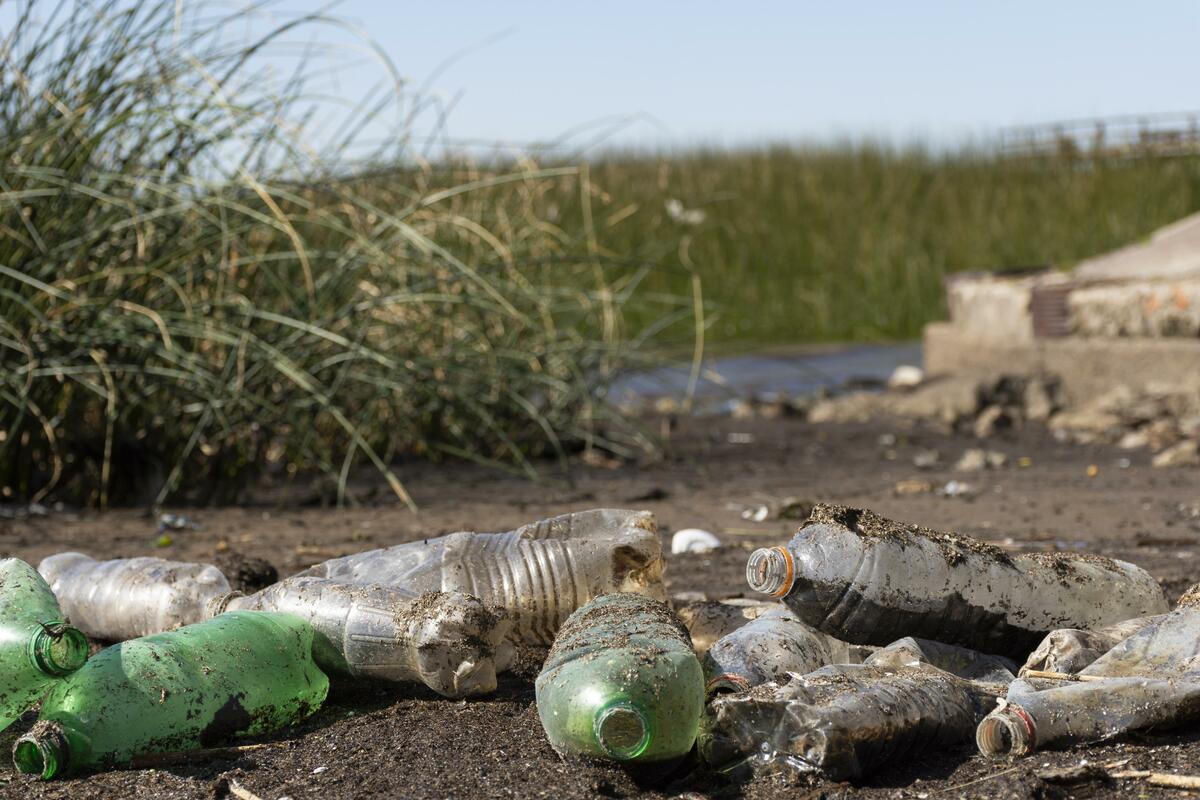
In February 2024, the UK Environment Agency announced a ground-breaking initiative in the fight against environmental crime - the launch of its Economic Crime Unit. This initiative marks a decisive step towards eradicating serious financial offences within the waste sector. By focusing on money laundering and other financial crimes that underpin environmental offences, the Economic Crime Unit aims to cut off the lifeblood of illicit operations that not only endanger the natural world but also impact the financial service sector. This move is quite significant, as it embodies an acknowledgment that safeguarding the environment goes hand in hand with upholding the integrity and transparency of the financial sector. This integrated approach is important because it protects the ecosystems and ensures a sustainable future. It makes it clear that environmental preservation and financial accountability are inextricably linked.
Understanding Environmental Crime and Its Financial Facets
Environmental crime encompasses a wide range of illicit activities, from illegal logging and wildlife trafficking to the dumping of hazardous waste. These crimes harm the planet, and undermine the health, safety, and welfare of local communities. They happen closer to home that many people might thing. The Independent review into serious and organised crime in the waste sector commissioned by the Department for Environment, Food & Rural Affairs, the Home Office, and the Environment Agency in 2018 has highlighted the emergence of industrial-scale organised waste crime as a significant problem, detailing the environmental, economic, and regulatory impacts it has. The review highlights the scale of waste crime in the UK, such as the annual production of 200 million tonnes of waste, and the involvement of 4,629 organised crime groups in environmental crime. It also highlights the financial impact of waste crime, and outlines the Environment Agency's challenges in combating this issue due to inadequate authority, powers, and a business model that is ill-suited to the modern, complex waste industry. More recently, the Environment Agency has noted that waste crime costs the economy in England an estimated £1 billion per year, which is the same as the combined starting salary of over 38,000 newly-qualified nurses!
What is often overlooked when it comes to environmental offences is the issue of money laundering. The link between environmental crime on the one hand and the abuse of the financial system on the other highlights the complex challenges that extend beyond national borders, affecting ecosystems and economies on a global scale. The environmental impacts are profound, leading to deforestation, loss of biodiversity, and significant disruptions to local and global eco-systems. Economically, these crimes funnel billions of pounds into the shadow economy, distorting markets and undermining legitimate businesses.
Examples of environmental crime and money laundering offer interesting insights into how these activities are intertwined and their impact on global security and sustainability. Trade-based fraud and the use of shell companies to handle shipping of illegal goods are widespread, complicating the efforts to trace and combat money laundering from environmental crimes. This complexity requires a coordinated global response from law enforcement, regulatory agencies and public engagement to effectively address both money laundering and environmental crimes.
The prevalence of abuse-prone shell companies and other secretive entities in the U.S. for example are key facilitator for criminals looking to launder the proceeds of environmental crimes. Financial secrecy in the U.S. has been a perfect playground for such activities, highlighting the urgent need for comprehensive reforms to deny criminals financial safe haven and to tackle environmental crimes effectively.
In one specific case, Global Plywood and Lumber Trading LLC pleaded guilty to purchasing illegally harvested wood from the Peruvian Amazon, showcasing a direct link between illegal logging and the laundering of proceeds through the financial system. This example underlines the challenges in enforcing laws like the Lacey Act in the U.S., which requires proof that a foreign law has been violated.
However, money laundering through environmental crimes is not limited to the US. It is a global issue, involving large sums of money and various laundering methods. Front companies, trade fraud, and the misuse of the financial sector are common strategies. For instance, in Madagascar, illegal logging is tied to political instability and corruption, with sophisticated trafficking practices emerging. Illicit revenues from such activities are often laundered through the vanilla industry, a major export of the country, blending illegal gains with legitimate earnings.
In Italy, a tax examination led to the discovery and dismantling of a global criminal organisation engaged in trafficking illegal waste, tax fraud, and money laundering. The investigation revealed fabricated invoices totalling US$68 million, with roundabout proceeds of crime transferred overseas and then returned, showcasing the ways money laundering operates within the context of environmental crimes .
The social implications are equally severe, with communities losing their livelihoods, encountering health hazards, and being drawn into cycles of poverty and displacement. It poses significant challenges to sustainable development and effective waste management, with far-reaching consequences on health, the environment, and the economy. The broad spectrum of waste involved underscores the urgency of global cooperation in waste management practices to safeguard public health and safety, highlighting the link between environmental stewardship and social well-being.
The relationship between the environment and the financial system therefore requires a concerted effort to tackle these crimes from both ends, including stronger regulations, international cooperation, and the adoption of innovative technologies for monitoring and enforcement.
The Role of The Financial Sector
The relationship of financial services with environmental crime is paradoxically both part of the problem and a key to the solution. Environmental crime, including activities like illegal dumping and waste trafficking, is not only a significant ecological issue but also a major financial crime concern. The FATF has identified environmental crime as a highly profitable criminal enterprise, generating billions in criminal gains every year. These illicit activities fuel further environmental harm, corruption, and link with other serious crimes such as tax fraud, drug trafficking, and forced labour. The FATF emphasises the 'low risk, high reward' nature of environmental crime, noting that light sanctions and limited efforts to confiscate profits make it a lucrative and relatively safe income source for criminals.
To combat these issues, the FATF recommends that countries consider the risks associated with criminals misusing their financial sectors to launder the proceeds from environmental crimes. This includes strengthening inter-agency cooperation between financial investigators and environmental crime agencies to pursue financial investigations into these crimes effectively. The private sector also plays an important role in identifying financial flows from environmental crimes, with the FATF highlighting good practices and risk indicators to aid detection.
Money laundered from environmental crimes can seep into legitimate markets, which makes financial oversight challenging. However, the financial services sector is still able to utilise the tools it has at its disposal to address these issues effectively. Due diligence, ongoing monitoring and innovative RegTech solutions can detect and disrupt the financial flows from environmental crimes. The industry’s potential to effect change is immense. By leveraging internal and external intelligence resources and strengthening internal controls, the financial services industry can turn into a formidable force against environmental crime!
Challenges and Opportunities
Financial institutions every day face the daunting task of distinguishing legitimate financial activities from those tied to environmental and other crimes. The sophistication of laundering techniques, together with the vast and rapid flow of global transactions, poses significant challenges in this regard. Yet, these challenges also present unique opportunities for innovation. Advances in technology and data analysis, such as AI and machine learning, can enhance the detection of suspicious activities. Financial institutions can leverage these tools to improve their monitoring systems, which will make it increasingly difficult for criminals to hide the proceeds of crime.
Open Source Intelligence (OSINT) has emerged as a useful tool in this regard. Via the analysis of satellite images, many environmental crimes can be detected as they are taking place. An obvious scenario is illegal logging but one should not underestimate how many clues criminals leave behind. With satellite imagery, investigative journalists have for example revealed that a lithium mine was wasting tremendous volumes of water in one of the driest places in the world, Chile. This was achieved partly by focusing on brine pools, easily spotted by satellites.
By analysing publicly available data, financial institutions can uncover hidden relationships, track illicit financial flows, and identify risk patterns associated with environmental crimes. OSINT tools enable firms to gather and analyse data from various sources, beyond satellite images. These include social media, public records, and other digital footprints, providing valuable insights that traditional investigative methods may not uncover.
To strengthen their defences against money laundering from environmental crime, financial services firms can also adopt a proactive and preventative approach, including by investing in education and training to recognise red flags related to money laundering from environmental crimes, such as:
- Large international money transfers between local waste management companies and known source countries for waste trafficking; and
- Large international money transfers between local waste management sector companies and known major importer / destination for waste trafficking. The FATF suggests that North America and Western Europe are principal source and transit countries for illicit waste trafficking, with significant parts of sub-Saharan Africa, Southeast Asia, and Central and South America being primary destinations.
However, in some cases, there might not be a destination country when trafficked waste is simply dumped locally or at sea.
For companies operating in the waste disposal sector, the following can also be signs that nefarious or illegal activities might be occurring:
- Lack of adequate organisational structures;
- Selling shares at lower than the book value; High value and frequent cash withdrawals;
- Payments for types of waste different to those they are authorised to process;
- Sudden and unexplained investment in waste facilities from entities with unclear beneficial ownership information; and
- Unexplained investment or sponsorship in entities that are not associated with waste.
The commonality between tax crime and environmental crime have also been highlighted; particularly relating to larger and more sophisticated players. Tax crimes may be associated directly with trade based money laundering (e.g., duties and taxes on goods crossing borders) as well as taxes owed to authorities for the use of public land. As usual, these structures tend to involve offshore banking as well as the use and involvement of corporate structures outside of the jurisdiction where the environmental crime was committed for the purposes of tax evasion.
About the Author
Tom Vidovic MBA is a Senior Financial Crime Manager and Nominated Officer for Ghana International Bank







